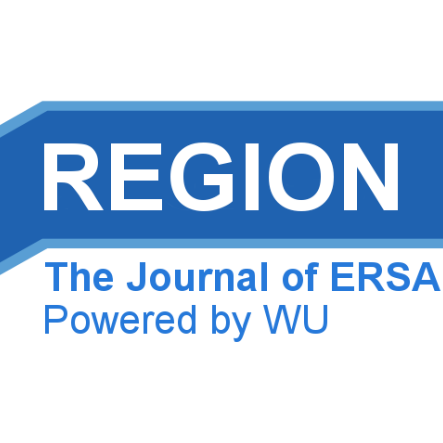Increasing innovativeness of SMEs in peripheral areas through international networks? The case of Southern Italy
DOI:
https://doi.org/10.18335/region.v3i1.93Keywords:
EU Policy, Knowledge Flows, Innovation Networks, Regional Disparites, SMEsAbstract
Strengthening innovation capacity of European small and medium enterprises (SMEs) by means of their participation in the Sixth (FP6-SME) and Seventh (FP7-SME) Framework Programmes was an important objective of the European Union policies. Since SMEs form the backbone of the Italian economy, their strong presence in an international network such as the one fostered by the European Union represent a great opportunity, particularly for firms located in southern Italy – the marginal macro-area of the country in terms of innovation – to increase their competitiveness. Based on the major literature on topics such as knowledge exchange, innovation networks and disparities, and on descriptive statistics and a cluster analysis in a dynamic perspective, our study aimed to assess the actual intra-regional, extra-regional and transnational links established by the Italian SMEs and public research establishments (PREs). In a next step we aim at assessing if knowledge flows fostered by the FP6-SME and FP7-SME were mainly concentrated in the traditionally winning macro-regional areas (North and Centre) or led to more widespread benefits in favour of SMEs located in the marginal South. The findings of our study revealed a very limited number of connections - with a related weak knowledge exchange - involving the southern regions, implying a reinforcement of innovation activities in the traditionally most dynamic industrial areas of the country.Published
How to Cite
Issue
Section
License
REGION is an open journal, and uses the standard Creative Commons license: Copyright We want authors to retain the maximum control over their work consistent with the first goal. For this reason, authors who publish in REGION will release their articles under the Creative Commons Attribution license. This license allows anyone to copy and distribute the article provided that appropriate attribution is given to REGION and the authors. For details of the rights authors grant users of their work, see the "human-readable summary" of the license, with a link to the full license. (Note that "you" refers to a user, not an author, in the summary.) Upon submission, the authors agree that the following three items are true: 1) The manuscript named above: a) represents valid work and neither it nor any other that I have written with substantially similar content has been published before in any form except as a preprint, b) is not concurrently submitted to another publication, and c) does not infringe anyone’s copyright. The Author(s) holds ERSA, WU, REGION, and the Editors of REGION harmless against all copyright claims. d) I have, or a coauthor has, had sufficient access to the data to verify the manuscript’s scientific integrity. 2) If asked, I will provide or fully cooperate in providing the data on which the manuscript is based so the editors or their assignees can examine it (where possible) 3) For papers with more than one author, I as the submitter have the permission of the coauthors to submit this work, and all authors agree that the corresponding author will be the main correspondent with the editorial office, and review the edited manuscript and proof. If there is only one author, I will be the corresponding author and agree to handle these responsibilities.




